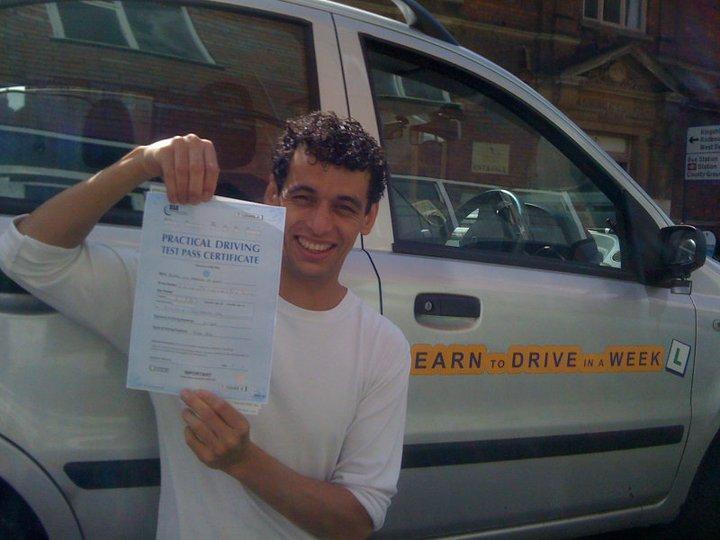The Ultimate Guide to Selecting a Driving Course that Matches Your Skill Level
The Ultimate Guide to Selecting a Driving Course that Matches Your Skill Level
Blog Article
Learning to drive is a transforming experience that brings independence, confidence, and a feeling of duty. However, choosing the right Driving Course that aligns with your skill level is a critical step in ensuring a smooth learning process. Whether you’re a beginner, a driver looking to refine your skills, or someone aiming to gain advanced certifications, this guide will help you navigate the process of selecting the perfect Driving Course for your needs.

Evaluate Your Current Driving Abilities
The first step is to assess your existing driving skills. Beginners with no experience will require foundational courses covering basic car operation and road rules. Intermediate drivers may benefit from refresher lessons to enhance specific skills like parallel parking or highway merging. For experienced drivers, advanced courses in defensive or precision driving could be ideal.
Some driving schools offer assessments to help gauge your skill level and recommend the best Driving Course to match.
Define Your Learning Objectives
Your driving goals significantly shape your course selection. If your aim is to pass a driving test, look for a program tailored to your region’s licensing requirements. For professional drivers, advanced certifications or courses for managing larger vehicles may be more suitable.
Having specific goals allows you to select a Driving Course that matches your objectives, optimizing the value of your time and effort.
Choose a Driving School You Can Trust
Choosing a certified driving school is essential for obtaining a great education. Find schools in your area that have good certifications from trusted organizations. This shows that the school follows certain education standards, has qualified teachers, and uses safe, well-kept vehicles.
When conducting research, read reviews, visit school websites, and even interact with past students. A reputable driving school should also provide flexible scheduling, straightforward pricing, and a variety of driving courses targeted to different ability levels.
Examine the Training Curriculum
A Driving Course curriculum should align with your skill level and goals. For novices, the emphasis should be on fundamental driving methods, traffic signs, and self-confidence. Intermediate driving courses may cover themes such as emergency response, reaction time improvement, and anxiety reduction in stressful conditions like heavy traffic.
Advanced classes sometimes include defensive driving tactics, skid control, and strategies for dealing with inclement weather. Make sure that the course you choose provides both academic and practical instruction. For instance, simulator sessions can be an excellent addition to practical on-road instruction.
Pick an Instructor Who Understands Your Needs
Your learning experience is greatly influenced by the caliber of the instruction you get. Qualified and experienced instructors may tailor their teaching style to your pace and learning preferences. Look for instructors who have certifications, excellent reviews, and a track record of assisting pupils in achieving their driving goals.
Take notice of the instructor's communication style, patience, and ability to provide constructive feedback at the initial meeting or trial lesson. A helpful and qualified tutor may significantly improve your development and confidence.
Prioritize Class Size and Training Environment
Class size and training environment are often disregarded, yet they are critical to your success. Smaller class groups or one-on-one teaching ensure that you get customized attention and spend enough time behind the wheel. This is especially critical for novices, who may want further instruction.
Check if the driving school offers practical instruction in real-world settings such as city streets, highways, and residential areas. Training in diverse settings will better prepare you for real-life driving scenarios.
Weigh the Cost Against the Value
Driving courses can vary greatly in price, so it's critical to select one that matches your budget without sacrificing quality. While money is an important factor, the cheapest choice is not necessarily the best. Evaluate the course's instruction hours, materials, and extra services such as sample examinations or free retakes.
Some driving schools also provide discounts for package deals or offer installment payment options. Compare different schools to find a course that delivers the best value for money.
Take Advantage of Trial Lessons and Flexibility
Many driving schools provide trial sessions to assist you in determining whether their teaching method is suitable for you. Taking a sample session allows you to see the instructor's approach, examine the vehicle's condition, and gain an understanding of the overall course layout.
Furthermore, scheduling flexibility is essential, particularly for people who must balance job and school responsibilities. Choose a course that fits your schedule while maintaining the quality and regularity of training.
Your Journey to the Perfect Driving Course
Choosing the best Driving Course for your ability level takes careful evaluation of your objectives, present skills, and learning preferences. You may begin your road to becoming a proficient and responsible driver with confidence by investigating reputable schools, assessing teachers, and verifying that the course material suits your needs.
For a reliable, supportive, and expertly tailored learning experience, consider JUST RIGHT DRIVING. Their skilled instructors, modern vehicles, and flexible programs ensure every student achieves driving mastery. Experience the confidence of learning in a safe, friendly environment with their exceptional training courses. Select them to reach your greatest potential while driving!